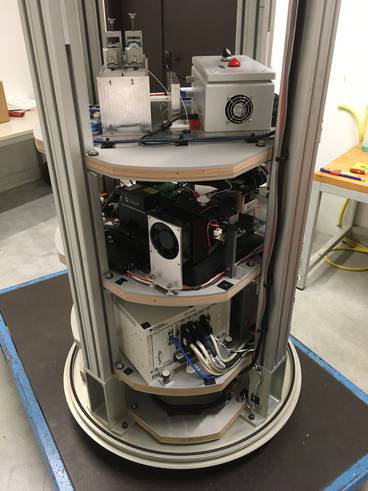Agglomeration von Nanopartikeln in Mikrogravitation (ARNIM)

research area: materials sciences
experiment title:
Agglomeration von Nanopartikeln in Mikrogravitation
experiment acronym: ARNIM
funding agency: DLR
grant number: 50WM1763
performing organization:
Leibniz-Institut für Neue Materialien gGmbH
prime investigator:
Prof. Dr. Tobias Kraus
experiment objective
abstract
Nanoparticles (NPs) are commonly used as building blocks for hybrid materials in nanotechnology. The agglomeration of these NPs in a suspension is a fundamental process with a major impact in fields such as biosensing, catalysis, optics, electronic, and biomedicine amongst others. The morphology of the agglomerates has a critical influence on the properties of these materials. It strongly depends not only on the interaction between particles, but also on the concentration, the temperature, the solvent, and other factors such as gravity. Gravity particularly affects particles, for example such with metal cores, when the agglomerates that they have formed reach a certain size. It is unknown how strongly the sedimentation affects the overall structure of the superstructures, and whether it also affects the internal order of the agglomerate, for example. To identify the influence of gravity on the agglomeration process, dispersions of NPs are brought in environments of low gravity (ZARM – drop tower) and agglomeration is induced. The resulting structures are investigated by optical scattering methods.
experiment campaigns
experiment year: 2020
number of catapult launches: 18
experiment year: 2019
number of catapult launches: 14


 "
"